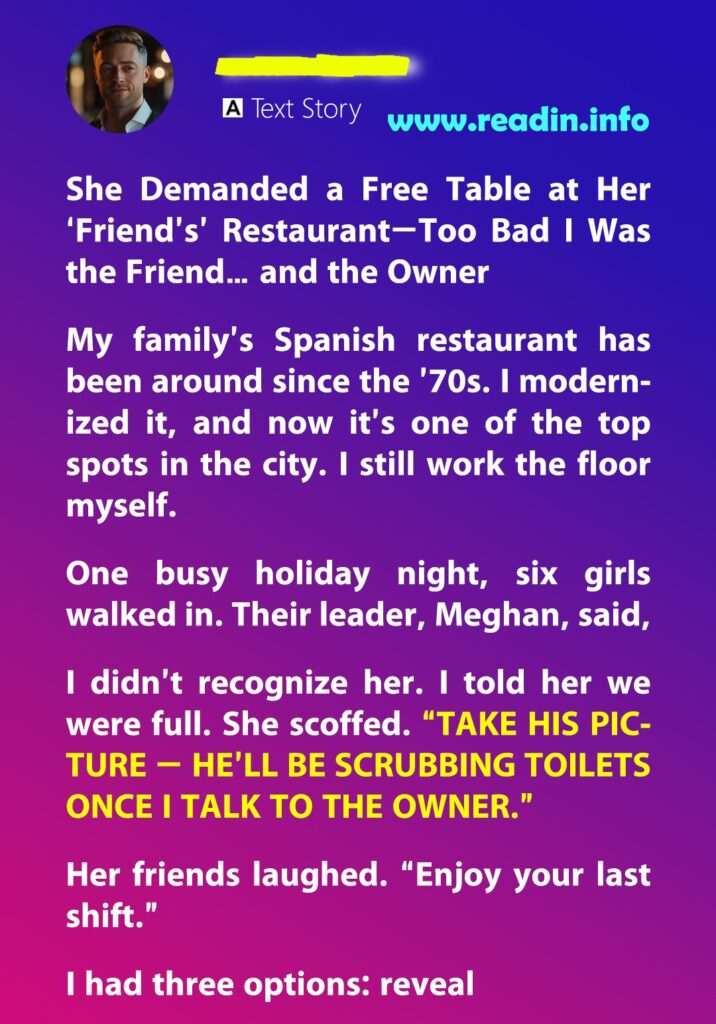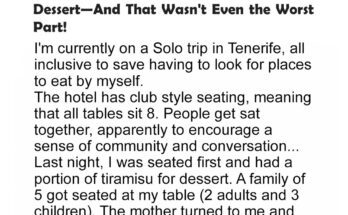I’ve spent 15 years building my restaurant from the ground up—a legacy passed down from my grandparents who immigrated from Spain with nothing but recipes and grit. They opened a modest corner eatery that smelled of saffron and hope. My parents expanded it, and when they retired, they handed me the keys to more than just a business—they gave me a promise to honor our roots.
I modernized the space, curated a menu that fused tradition with innovation, and built an online presence that made reservations scarce. Yet I never stopped working the floor. On busy nights, I’d be bussing tables, greeting guests, and making sure every detail was perfect. I believed no job was beneath me.
Then came Meghan.
It was the Friday before Christmas—our busiest night of the year. Every table was booked, the bar was overflowing, and the kitchen was a symphony of chaos. I was helping our hostess, Madison, when a group of six women pushed to the front. Meghan led the charge, wearing entitlement like perfume.
“Table for six,” she said, without a reservation.
Madison apologized, explaining we were fully booked. That’s when Meghan dropped the line: “The owner’s a close friend of mine. He always keeps tables open for special guests like us.”
Madison looked to me. I stepped forward, calm and polite. “I handle our VIP arrangements. Which owner are you friends with?”
Meghan didn’t flinch. “We go way back,” she said, confidently.
I smiled. “That’s interesting. I’m the owner.”
Her face froze. The charm drained from her expression. She stammered, tried to recover, but the damage was done.
I didn’t make a scene. I simply told her we couldn’t accommodate walk-ins, even “friends.” She left, humiliated, and I returned to the floor—back to the people who respected the space, the food, and the story behind it.
That night reminded me why I do this. Not for the clout or the status, but for the legacy. For the people who walk in with gratitude, not entitlement. For the ones who understand that friendship isn’t a shortcut—it’s a bond built on respect.



